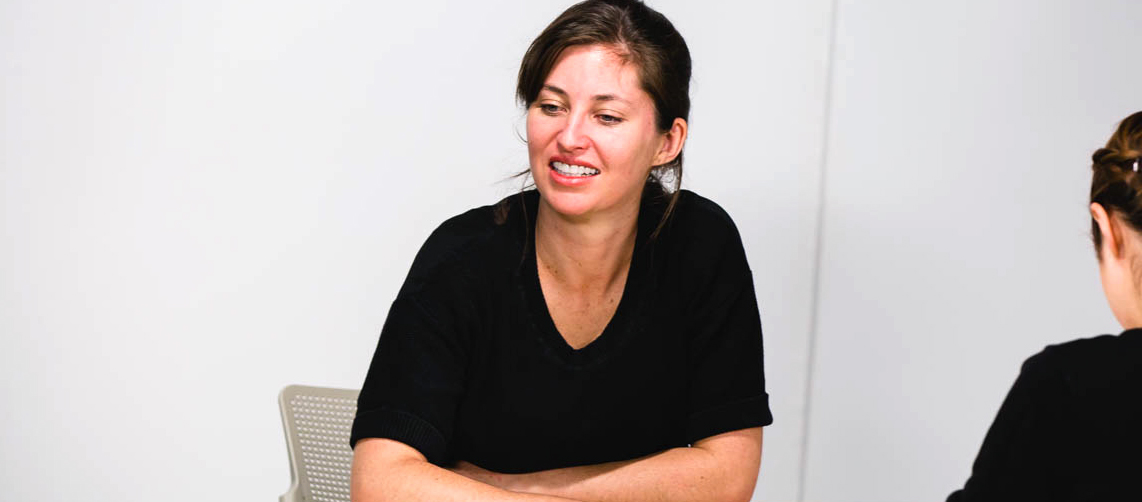We catch up with author and writing tutor Miranda Miller, who gives us a starter kit on how to write your own novel, providing tips and insights on overcoming natural moments of doubt and helping put pen to paper...
Miranda has published seven novels including The Bedlam Trilogy - Nina in Utopia, The Fairy Visions of Richard Dadd, and King of the Vast. Each book of the series revolves around themes of art, romance, madness and Victoriana, and steps beyond realism into fantasy.
She has nearly 40 years' industry experience and Booker Prize winning author Hilary Mantel has praised her work, “Miller’s intricate fictions are lit by the dark flicker of a strong and original imagination.” As part of a career, Miranda has also offered editorial advice and assessment to writers on the cusp of sending their work to agents and publishers, and lends us her expertise for this piece. On to the tips...
Find Your Rhythm
Humans are creatures of habit. Even if we are night owls or early risers, organised thinkers or scatterbrained, there is nearly always method in the madness: the creation of patterns in our lives is not only comforting because it’s familiar, it is unintentional or intentional repetition. We rinse and repeat, so by design, we practice. Practice makes perfect.
So when you decide you are ready to start writing your novel, set aside a regular time and place to work and get into the rhythm. Get the subconscious used to the idea of your idea, and geared up to go.
In my experience the only way to overcome nerves is to carry on; despite the difficulties I have found writing fiction a fascinating process and have never regretted my decision to throw my life at it. It has certainly changed me as a person, and has provided me with a kind of double life: I mean that whatever is happening or not happening in my ‘real’ life I have always had an alternative universe I can escape to.
- Miranda Miller
Listen To The Voices In Your Head
It would be pretty scary to sit down to write a book, and just wait for a story to come to you. There’s a chance you’d find that fun and that it works, but it would most likely take you a pretty long time to start and concentration might wane.
Starting without knowing where you’re going is a formula that is best left for spontaneous evening strolls. Novels shouldn’t feel like endless walks. So the best way to plan is to wait until you can clearly hear the voice of your main protagonist in your heart and your head, and have some idea who the other main characters are.
The more tuned in you get to your characters' voices, the less likely you are to lose sight of them in your mind’s eye when it comes to getting them and their plot lines out of your imagination and onto paper.

Take Note
Jotting down to-do lists is a coping mechanism for the chaos of modern life for many, but get used to getting more of your pen and paper. Mogul, Richard Branson, legendary shipping tycoon, Aristotle Onassis, and even rapper, Eminem, have all revealed how important the notebook was to them when it came to creating.
As a writer approaching a novel it’s helpful to carry a notebook with you so that you can write down ideas, dreams, overheard conversations - any day to day interactions or sources of inspiration that could feed into your storytelling. These can come and go like blips of the subconscious that never happened, unless we catch them in the moment and enable ourselves to record them - if JK Rowling never had those napkins on that train back in 1990, who knows if Harry Potter would ever have existed?
Despite the prevalence of the smartphone, it’s pretty useful to physically write things down. For one, there’s no distractions, no pop up notifications, no bright beaming backlight to diminish the light within you. Maybe you’re not bothered by any of that, but there’s definitely something to be said of psychosomatic memory formation - solidifying thoughts with tactile actions, when the mental and the physical meet, when the ink seeps in and scribbles down the voice in your head.
Having said that, mobile devices are great one-stop-shops for documenting imaginative thoughts - there’s always a camera to hand, voice recording features, and apps like evernote for easy note taking that syncs across all your devices.
Whatever way you do it, don’t allow yourself to forget any of your sparks of brilliance.
I have now published nine books, seven of them novels. It is always terrifying and the novel I have just started is no less intimidating than the first novel I finished forty years ago. To quote John Steinbeck: “It is not so very hard to judge a story after it is written but, after many years, to start a story still scares me to death. I will go so far as to say that the writer who is not scared is happily unaware of the remote and tantalising majesty of the medium.”
- Miranda Miller
Switch Off
For a lot of people, it can be hard to get into the zone for writing, so once you achieve this and get going, you want to stay there and minimise the potential for distractions.
Sure, you can't help people crossing your path, a rumbling belly, or a fleeting meditational moment of staring blankly into space - but these aren't always in your control.
What is in your control is your phone, your devices, your social media accounts and your email - turn them off and block them out. Remove the temptation to check them, and the excuse for logging out of the task at hand.
It’s difficult to stay focused and concentrate, especially when everything around us is seeking our attention - the logo on the coffee cup, the poster on the wall, the side of the truck that just drove past, the slogan on the babygrow on the kid in the buggy next to you.
Create an environment that nurtures your inner voice, allows it to speak freely and be heard - not drowned out by white noise of pinging notifications and ringing phones.

Give Your Idea A Voice
So we’ve been referring to this voice inside of us, where we all silently talk to ourselves in our head. This is the phenomenon that psychologists call ‘inner speech’, and some in the scientific community believe it is the internalisation of external, ‘expressed’ speech - that when we talk to ourselves in our head, we actually move certain muscles as if we were talking aloud.
So why waste all that energy, why not just read out loud?
Speaking out your novel helps spell out the errors. All the things you might not consider when internalising your voice, come to light, such as where you need punctuation to allow the reader to take breath or create pauses for effect. If you aren't comfortable reading your own book aloud, it's unlikely others will be, so get past any cringing and become the narrator of your own story.
I am of course very happy to have been published, but publication hasn’t given me as much satisfaction as writing. I don’t plan the structure of my novels in great detail although of course many writers do, and in my classes I give examples of how everyone is different.
- Miranda Miller
Don't Let Genre Define You
A lot of people hit a roadblock right at the start because they're terrified of wasting time on releasing a novel that will pigeonhole them, but genre doesn't have to define you as an author. Miranda explains how she's spent most of her writing life trying to escape the "straitjacket of genre," the boundaries of which have generally become more blurred in the publishing world:
"My novels are very much character led. After publishing three realistic novels I published a dystopian one (Smiles and the Millennium, Virago 1987). I then wrote a book of short stories about Saudi Arabia (A Thousand and One Coffee Mornings, Peter Owen 1989) and a book of interviews with homeless women and politicians (Bed and Breakfast: Women and Homelessness Today, The Women's Press 1990). I then felt that I wanted to write a more imaginative kind of novel, so I wrote a variation on the Faust story, about a woman who trades her soul for eternal youth (Loving Mephistopheles, Peter Owen 2007).
My next three novels dealt with the connections between art and madness and in each novel the main character travels from 19th century London to our 21st century city (The Bedlam Trilogy, published individually by Peter Owen in 2010, 2013 and the last one I finished a few months ago - all three books will be published in one volume next year). However, the novel I have just started is not fantasy - it is about artists and is set mainly in Rome in the 18th and early 19th century. So, as you see, I have a complicated relationship with genre and tend to feel that it chooses me, rather than my choosing it."
Most people have eclectic taste as readers and enjoy most kinds of fiction, so there's no reason you can't do the same as a writer.
BONUS TIP: Move forward with caution when you are ready for the next step. For your first novel you will need to find an agent. This is not easy but you can find a list in the Artists' & Writers' Yearbook 2017. Before handing over any money to an agent or self-publishing company, you should check with the Society of Authors that they are genuine.
 Miranda is passionate about novel writing and loves sharing that enthusiasm. Her classes offer students the opportunity to explore writing in a fun and friendly group environment, but also receive plenty of individual attention and tailored advice.
Miranda is passionate about novel writing and loves sharing that enthusiasm. Her classes offer students the opportunity to explore writing in a fun and friendly group environment, but also receive plenty of individual attention and tailored advice.
For other writing courses, check out our department page here >>>







